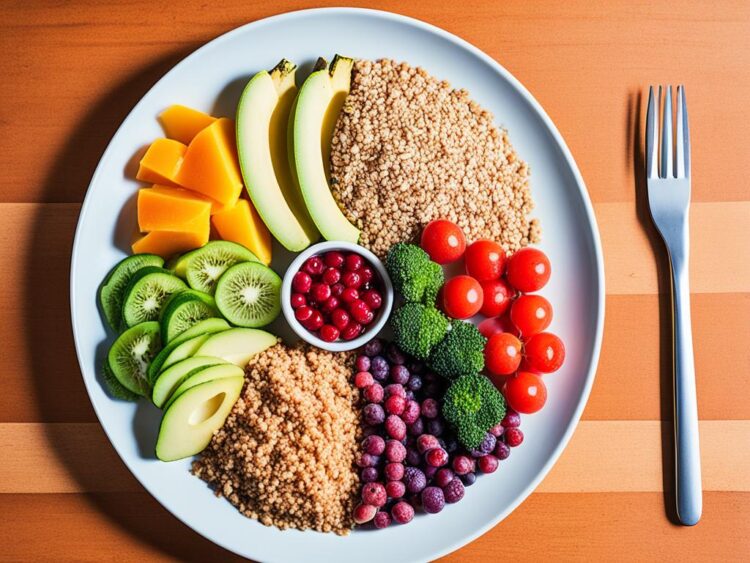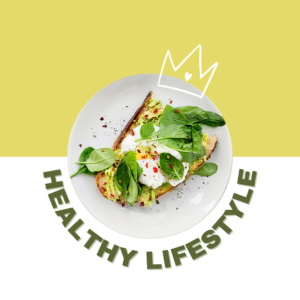Gaining weight during pregnancy is a natural part of the journey, but it's important to return to a healthy weight after delivery for your well-being and future pregnancies. Excess weight gain can increase the risk of various health complications, such as obesity, diabetes, and heart disease.
In this article, I will provide you with expert guidance on how to achieve healthy and sustainable weight loss after having a baby. By making simple lifestyle changes related to nutrition, exercise, and breastfeeding, you can embark on a journey towards reclaiming your pre-pregnancy weight.
Key Takeaways:
- Set realistic goals for postpartum weight loss, aiming for a gradual and sustainable process.
- Focus on healthy eating, including a balanced diet of fruits, vegetables, whole grains, lean proteins, and healthy fats.
- Consider the benefits of breastfeeding, as it can aid in postpartum weight loss over time.
- Incorporate regular exercise into your routine, starting with gentle activities like walking and gradually progressing.
- Remember to prioritize self-care and seek support from healthcare providers, family, and friends along your weight loss journey.
Understanding “Baby Weight”
The term “baby weight” refers to the additional pounds gained during pregnancy, composed of the baby, placenta, amniotic fluid, breast tissue, blood, uterus enlargement, and extra fat stores. It is common for nearly half of all pregnant women to gain more than the recommended amount of weight during pregnancy. Keeping on excess weight after pregnancy can increase the risk of being overweight, diabetes, heart disease, complications during pregnancy, and other health risks.
Understanding the factors contributing to baby weight gain can help in formulating effective postpartum weight loss strategies.
The Components of Baby Weight
The baby weight gained during pregnancy includes:
- The weight of the baby itself
- The weight of the placenta
- The weight of the amniotic fluid
- The weight of breast tissue
- The weight of blood
- The weight of the enlarged uterus
- The weight of extra fat stores
These factors contribute to the overall weight gain and should be taken into account when considering postpartum weight loss.
The Consequences of Excess Weight Gain During Pregnancy
Excess weight gain during pregnancy can have a range of consequences, including:
- Increased risk of being overweight
- Increased risk of diabetes
- Increased risk of heart disease
- Complications during pregnancy
- Other health risks
It is important to understand these potential consequences and take steps to address excess weight gain for a healthier postpartum journey.
| Consequences of Excess Weight Gain During Pregnancy | |
|---|---|
| Increased risk of being overweight | Higher BMI, difficulty losing weight, long-term health risks |
| Increased risk of diabetes | Gestational diabetes, type 2 diabetes |
| Increased risk of heart disease | High blood pressure, elevated cholesterol levels, heart problems |
| Complications during pregnancy | Gestational hypertension, preeclampsia, cesarean delivery |
| Other health risks | Joint pain, sleep apnea, mental health issues |
Realistic Goals for Postpartum Weight Loss
When it comes to losing weight after pregnancy, it's essential to set realistic goals for yourself. While it's understandable to want to shed the excess pounds quickly, it's important to remember that healthy weight loss takes time. Rapid weight loss can be detrimental to your overall well-being and may lead to nutritional deficiencies and muscle loss. Instead, focus on sustainable strategies that prioritize your long-term health and well-being.
On average, women can expect to lose about half of their baby weight within six weeks after delivery. This initial weight loss is primarily due to the loss of the baby, amniotic fluid, and placenta. However, it's important to note that losing the remaining weight may take several months or even up to a year, depending on the amount gained during pregnancy.
To maintain a healthy and sustainable weight loss, aim to lose about one pound per week. This gradual approach is not only safe but also more likely to result in long-term success. By focusing on a moderate and steady weight loss, you'll give your body the time it needs to adjust and recover from childbirth.
“Losing weight after pregnancy requires patience, realistic goals, and a focus on healthy lifestyle habits.”
In order to track your progress and stay motivated, consider setting smaller milestones along the way. Celebrating each milestone achieved can help boost your confidence and keep you motivated on your weight loss journey.
Table
| Time Frame | Weight Loss Goal |
|---|---|
| Within 6 weeks after delivery | Lose half of baby weight |
| 6 months to 1 year | Return to pre-pregnancy weight |
It's important to remember that everyone's weight loss journey is unique, and individual results may vary. Don't compare yourself to others or get discouraged if your progress is different. Trust the process, be patient with yourself, and focus on making sustainable lifestyle changes that promote overall health and well-being.
By adopting realistic goals, implementing healthy eating habits, engaging in regular exercise, and seeking support from healthcare providers and loved ones, you can achieve your postpartum weight loss goals and improve your overall well-being.
Healthy Eating for Postpartum Weight Loss
A well-balanced and nutritious diet is essential for postpartum weight loss. Instead of resorting to crash diets or restrictive eating plans, it is important to focus on consuming well-balanced meals that include a variety of foods from different food groups. Here are some key components of a healthy eating plan after pregnancy:
1. Fruits and Vegetables
Include plenty of fruits and non-starchy vegetables in your meals. These are rich in essential vitamins, minerals, and dietary fiber, which can help support postpartum recovery and weight loss. Aim to have at least five servings of fruits and vegetables each day.
2. Whole Grains
Choose whole grains like brown rice, whole wheat bread, and quinoa over refined grains. Whole grains are higher in fiber and can help you feel satisfied for longer periods of time. They also provide important nutrients like B vitamins and iron.
3. Lean Proteins
Incorporate lean proteins like chicken, fish, tofu, beans, and lentils in your meals. Proteins are essential for muscle repair and can help you feel full. They also have a higher thermic effect, meaning your body burns more calories during digestion.
4. Healthy Fats
Incorporate sources of healthy fats into your diet, such as avocados, nuts, seeds, and olive oil. These fats are important for hormone production and overall health. However, it is important to consume them in moderation, as they are still calorie-dense.
5. Portion Control
Pay attention to your serving sizes and avoid overeating. Use smaller plates and bowls to help control portion sizes. It can also be helpful to practice mindful eating, savoring each bite and paying attention to your body's hunger and fullness signals.
6. Snacks
Choose snacks that are fiber and protein-rich to keep you feeling fuller for longer. Some healthy snack options include Greek yogurt, nuts, seeds, fresh fruits, and cut-up vegetables with hummus.
7. Hydration
Stay hydrated by drinking plenty of water throughout the day. Limit the consumption of sugary drinks and opt for water, herbal tea, or infused water instead.
By following these guidelines, you can create a postpartum weight loss meal plan that is nutritious, balanced, and enjoyable. Remember, it's important to be kind to yourself and make gradual, sustainable changes to your eating habits.
| Food Group | Examples |
|---|---|
| Fruits and Vegetables | Apples, oranges, leafy greens, broccoli, bell peppers |
| Whole Grains | Brown rice, quinoa, whole wheat bread, oats |
| Lean Proteins | Chicken breast, fish, tofu, lentils, beans |
| Healthy Fats | Avocados, nuts, seeds, olive oil |
| Snacks | Greek yogurt, nuts, fresh fruits, cut-up vegetables with hummus |
The Role of Breastfeeding in Postpartum Weight Loss
When it comes to postpartum weight loss, breastfeeding can play a significant role. Not only does it provide numerous benefits for both the mother and the baby, but it can also help burn calories and contribute to weight loss over time.
During breastfeeding, the body utilizes extra calories to produce milk, which can aid in weight loss. However, it's important to note that in the first three months of breastfeeding, weight loss may be minimal or even accompanied by weight gain. This is mainly due to the increased calorie needs of lactation and reduced physical activity during the early postpartum period.
It is recommended to wait until breastfeeding is established, typically around two months after delivery, before actively trying to lose weight. This ensures that both the mother and baby are adjusting well to the breastfeeding routine, and an adequate milk supply is maintained.
When actively working towards weight loss while breastfeeding, it's crucial to approach it gradually and safely. Aim for a gradual weight loss of about a pound and a half per week, which is considered a healthy and sustainable rate. This will ensure that you are losing weight in a manner that supports your overall health and well-being.
Here are a few tips for postpartum weight loss while breastfeeding:
- Focus on consuming a well-balanced diet that includes a variety of nutrient-dense foods.
- Avoid crash diets or drastic calorie restrictions, as they can negatively impact milk supply and overall health.
- Stay hydrated by drinking plenty of water throughout the day.
- Incorporate gentle exercises, such as walking or postpartum yoga, into your routine once you have received clearance from your healthcare provider.
- Get sufficient rest and prioritize self-care to aid in your postpartum recovery.
By following these guidelines, you can achieve a healthy and sustainable postpartum weight loss while providing the best nutrition for your baby through breastfeeding.
| Benefits of Breastfeeding for Weight Loss | Considerations for Weight Loss while Breastfeeding |
|---|---|
| 1. Calorie Burning: Breastfeeding requires additional calories, which aids in weight loss. | 1. Wait for Breastfeeding to Be Established: It is recommended to wait until breastfeeding is well-established before actively trying to lose weight. |
| 2. Hormonal Changes: Breastfeeding triggers the release of hormones that help shrink the uterus and burn fat stores. | 2. Gradual Weight Loss: Aim for a gradual weight loss of about a pound and a half per week to ensure an adequate milk supply. |
| 3. Convenience: Breastfeeding requires no preparation, making it easier to prioritize and manage weight loss goals. | 3. Balanced Nutrition: Focus on a well-balanced diet to ensure adequate nutrient intake for both you and your baby. |
Incorporating Exercise into Postpartum Weight Loss
Regular exercise is an important component of postpartum weight loss. It not only helps in shedding the extra pounds gained during pregnancy but also promotes overall physical and mental well-being. Engaging in physical activity after pregnancy can help improve strength, boost energy levels, relieve stress, and enhance mood.
Light exercise, such as walking, is generally safe and can be started as early as two weeks after delivery for uncomplicated vaginal births. This low-impact activity helps get your body moving without putting excessive stress on your joints. However, if you had a cesarean section, it may require a longer recovery period before you can begin exercising.
When incorporating exercise into your postpartum weight loss journey, it's essential to start gradually and listen to your body. If you experience any pain or discomfort, it's important to stop and consult with your healthcare provider before continuing.
To rebuild strength and tone your body, focus on postpartum exercises that target the abdominal and pelvic floor muscles. These exercises not only help rebuild core strength but also improve posture and stability. Some effective exercises include pelvic tilts, kegel exercises, abdominal contractions, and gentle yoga poses.
Remember to consult with your healthcare provider before starting or modifying any exercise routine. They can provide personalized recommendations based on your individual postpartum recovery and overall health.
Incorporating exercise into your postpartum weight loss journey requires dedication and consistency. Find activities you enjoy and make them a part of your daily routine. Whether it's joining a postnatal fitness class, going for a swim, or following an exercise video at home, find what works for you.
By combining a healthy diet, portion control, and regular exercise, you can achieve postpartum weight loss in a safe and sustainable way. Remember to be patient with yourself and celebrate small victories along the way.
Conclusion
Losing weight after pregnancy requires patience, realistic goals, and a focus on healthy lifestyle habits. As a new mom, it's important to give yourself time to recover from childbirth and gradually work towards your weight loss goals. Remember, it took nine months to put on the baby weight, so it's reasonable to expect it to take time to shed those pounds.
A combination of healthy eating, portion control, regular exercise, and breastfeeding can contribute to effective and sustainable postpartum weight loss. Focus on nourishing your body with well-balanced meals that include fruits, vegetables, whole grains, lean proteins, and healthy fats. Don't forget to stay hydrated and limit sugary drinks and processed foods.
Incorporating exercise into your routine can help boost weight loss and improve overall fitness. Start with light exercises like walking and gradually increase the intensity over time. Be sure to listen to your body and consult with your healthcare provider before starting any exercise routine.
Lastly, remember to prioritize self-care and seek support from healthcare providers, family, and friends. Losing weight after pregnancy is a journey, and having a support system can provide encouragement and guidance along the way. By embracing a healthier lifestyle, you can achieve your weight loss goals and improve your overall well-being as a new mom.
FAQ
What is considered “baby weight”?
“Baby weight” refers to the additional pounds gained during pregnancy, which includes the baby's weight, placenta, amniotic fluid, breast tissue, blood, uterus enlargement, and extra fat stores.
How much weight can I expect to lose after childbirth?
On average, women can expect to lose half of their baby weight within six weeks after delivery, and the rest over the next several months. It is realistic to aim for a weight loss of about one pound per week.
How long does it take to return to pre-pregnancy weight?
Depending on the amount of weight gained during pregnancy, it may take between six months to a year to return to pre-pregnancy weight.
What should I include in a postpartum weight loss meal plan?
A well-balanced and nutritious diet should include fruits, non-starchy vegetables, whole grains, lean proteins, and healthy fats. Portion control is important, and snacks should be fiber and protein-rich.
Can breastfeeding help with postpartum weight loss?
Yes, breastfeeding can contribute to weight loss over time as it helps burn calories. However, weight loss may be minimal in the first three months due to increased calorie needs and reduced physical activity.
When can I start exercising after childbirth?
Light exercise, such as walking, can typically start two weeks after delivery for uncomplicated vaginal births. Cesarean section deliveries may require a longer recovery period before engaging in physical activity.
What are some postpartum exercises for weight loss?
Postpartum exercises that target the abdominal and pelvic floor muscles, such as pelvic tilts, Kegels, and gentle core strengthening exercises, can help rebuild strength. It is important to consult with your healthcare provider before starting or modifying any exercise routine.
How long does it take to lose weight after pregnancy?
Losing weight after pregnancy takes time, and it is important to have patience. Aim for a gradual weight loss of about one pound per week and understand that it may take between six months to a year to reach your pre-pregnancy weight.
What is the key to effective postpartum weight loss?
The key to effective postpartum weight loss is a combination of healthy eating, portion control, regular exercise, and breastfeeding (if possible). Prioritizing self-care and seeking support from healthcare providers, family, and friends are also important aspects of the journey.





